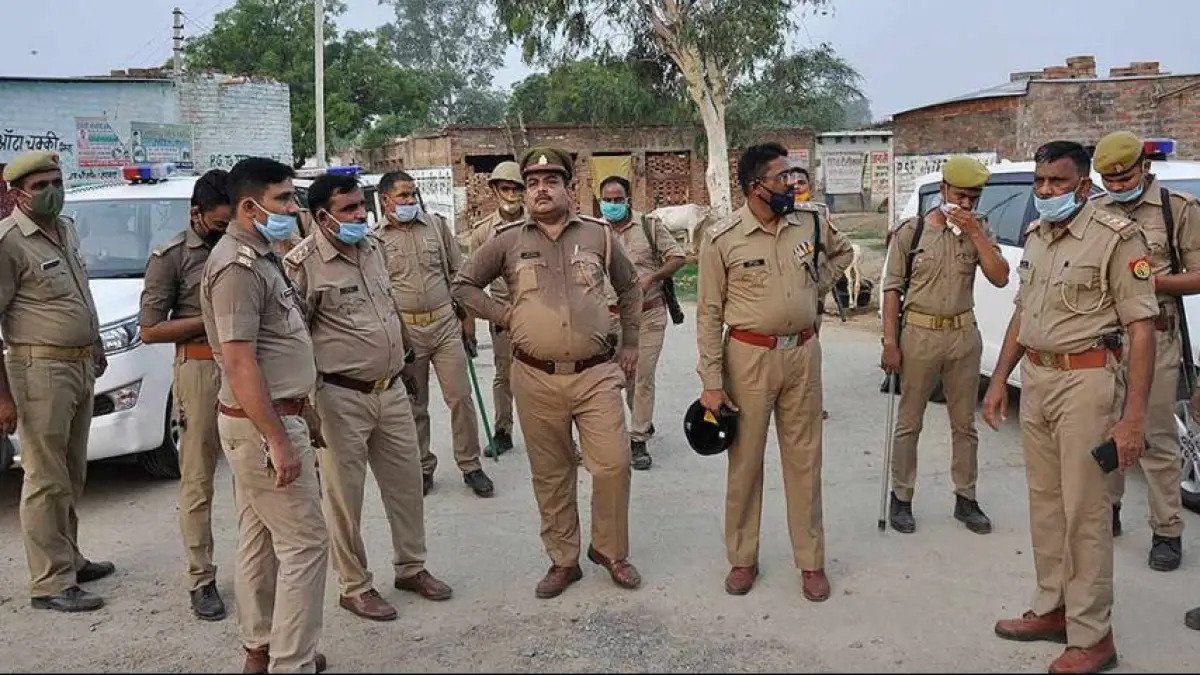NEW DELHI: A 27-year-old businessman, who was taken into detention on the night of 12 December by police officers at Uttar Pradesh’s Kanpur Dehat district, died in custody the next morning, after which 11 policemen, including two Station House Officers, were placed under suspension. Later, five of the 11 policemen—including SHOs of Shivli and Rania police stations, Rajesh Kumar Singh and Shiv Prakash Singh—were booked under murder charges.
In September last year, a 36-year-old Kanpur-based businessman died on the spot after policemen assaulted him during a surprise hotel inspection in Gorakhpur. The Central Bureau of Investigation (CBI), which was handed over the case by the state government in the wake of the massive anger in the trading community, named six police officers—the then SHO Jagat Narayan Singh, the then Sub-Inspectors Akshay Kumar Mishra, Vijay Yadav, Rahul Dubey, then Head Constable Kamlesh Singh Yadav and Constable Prashant Kumar of Ramgarh Tal Police Station—in the case.
In March this year, three policemen posted in Bulandshahr were booked for murder, criminal conspiracy, and other charges for killing a man in custody in December 2020. The delayed action in the case came only after the Allahabad High Court criticised the state government and asked the Additional Chief Secretary (Home) of Uttar Pradesh government to file his personal affidavit, disclosing steps taken by the government following the submission of a judicial inquiry report in the Bulandshahr custodial death case. The court also directed that the affidavit should explain the action taken against officers found responsible in the case.
In July this year, Government of India (GoI) informed Parliament that Uttar Pradesh had reported the highest number of custodial deaths among all states and Union Territories in the last two years. As per the data provided by GoI, in 2020-21, Uttar Pradesh recorded 451 custodial deaths. The number rose to 501 in 2021-22. The total number of custodial deaths in India was 1,940 in 2020-21 and 2,544 in 2021-22, which means that every 1 out of 5 custodial deaths in India was taking place in UP.
And these numbers do not include the incidents like the one that took place in Gorakhpur where the trader was killed by the policemen in a hotel and not in a police station or while being in custody. As per GoI figures, every day, more than one person was being killed at the hands of the UP police while still being in custody. After Uttar Pradesh, the highest number of custodial deaths was reported from West Bengal. The state recorded 185 deaths in 2020-21 and 257 deaths in 2021-22.
A senior official of the UP Home Department told The Sunday Guardian that whenever such incidents of police brutality come to light, immediate action is taken and the police officials concerned are held accountable.
The DGP office, when reached for a response, directed The Sunday Guardian to speak to Additional Director General of Police (Law and Order), Prashant Kumar. Kumar’s office stated that he would come back with a response on the matter. However, none was received till the time this report went to press.
Incidentally, the ruling Bharatiya Janata Party in Uttar Pradesh has multiple IPS and Provincial Police Service officers in its ranks who come from a police background, including Asim Arun, Rajeshwar Singh who are MLAs, Rajya Sabha member Brij Lal (retired 1977 batch IPS officer) and Satya Pal Singh (retired 1980 cadre IPS officer), who is a Lok Sabha MP from Baghpat.
“The authorities have given a sort of free hand to the police department to curb crimes and tackle the criminal network. Many of the police brutalities do not come in the press or in front of the judiciary, sometimes because of the weak socio-economic background of the victim and his family. The only way to tackle this problem is for the state government to take quick and hard action against the erring policemen,” a judicial officer posted in the state told The Sunday Guardian.
UP police in hyper mode, custodial deaths multiply
- Advertisement -

